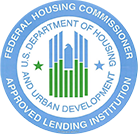In part one of this blog, we talked about addressing and improving your credit, figuring out how much house you can afford by using a mortgage rate calculator, and the fact that you should build up your savings before moving on in the process. In this post, we’ll get into a bit more detail about the savings amount, and the next steps in the process of buying a home.
How much should you save:
So, how much should you have in savings, exactly? Well, that varies from person to person, but a good guideline is to keep at least six months’ worth of payments in your account AFTER the down payment has been made. And don’t forget there are closing costs, (which can run about 3% of the cost of the home,) upkeep and repair costs. Using the previous post’s example of a $300,000 home, you’ll need $30,000 for the down payment (though $60,000 would be closer to ideal.) You’ll also need about $9,000 in closing costs and maintenance and initial repair costs will run around $11k. This means that all told, you’ll want to have a minimum of $58,000 put away before you sign any paperwork, and that’s with a down payment of only 10% and a 30-year mortgage. This should help you to see why the dream of homeownership is indeed a dream for many.
If you have completed all of these items, and you’re ready to go house-hunting, stop! There’s still one more thing you should do before you head to the open houses in your dream neighborhood.
The Pre-approval Process:
Pre-approval. House sales can move blindingly fast, and if you fall in love with a home and it is sold out from under you, you can experience some very real heartache. One way to ensure that doesn’t happen is to get pre-approved by a mortgage lender. Lenders such as QuikFund can give you the best possible chance of receiving a loan, because they have a wide variety of loan products to offer, and additionally, they will be able to not only verify how much you’ll be able to borrow but to handle the entire process behind getting a mortgage from education, to actually executing the loan.
Once you’re pre-approved for an amount, talk to your lender about the right mortgage product for you. You’ll need to decide between a 15 and a 30-year mortgage, as well as whether you want an FHA, ARM, VA or conventional mortgage. There are pros and cons to each, as well as qualifying factors, but an educated lender will be able to offer a tremendous amount of guidance regarding your specific situation and desires.
It’s Time to House Hunt:
Finally, once you’ve completed all of these steps, it’s time to hunt. Remember your home will likely be the biggest investment you’ll ever make in your lifetime, and most of the time, you won’t see it pay off unless you stay for at least seven years. However, for most people, plan to be in a house for a lifetime, and, when considering all of the efforts it takes to move and the cost to furnish a home, that makes a lot of sense.
When you know you’ve found your dream home, make your move! Make an offer on the house while keeping the market in mind. At the time this blog is being written, it’s a competitive market, so you may need to be aggressive if you aren’t willing to risk losing that particular house, but don’t let that make you go over budget. Remember, whether you’ve been pre-approved or not, if you go too far over budget, the deal will fall through. No matter how much you think you love a house, you don’t want to be paying too much either, so be honest with yourself, and your bank account, to avoid these issues altogether.
If you make your offer and the seller agrees, the property will go through a bank ordered an inspection to ensure it’s worth what you’re going to pay for it. This inspection should catch any major issues that are wrong with the house, and you can negotiate either the repairs or a discount, into the final price of the house. You’ll also do a walk-through, and order a title search, which will make sure there are no liens on the house. After ALL of that is done, you’ll schedule the closing, sign a ton of paperwork and finally, the house will be yours.
This can all seem incredibly daunting, so ensuring that you go with a flexible, and responsive mortgage banker is vital to keeping your stress levels down during the process. You’ll want to find a company that answers your questions clearly, and as they come up so you’ll always feel in control of the process. Real estate agents may recommend their own brokers, but keep in mind that many have back-door deals with brokers who’s mortgage rates and options may not benefit the buyer, so working directly with a lender is often your best bet to get the process done quickly, and easily.








